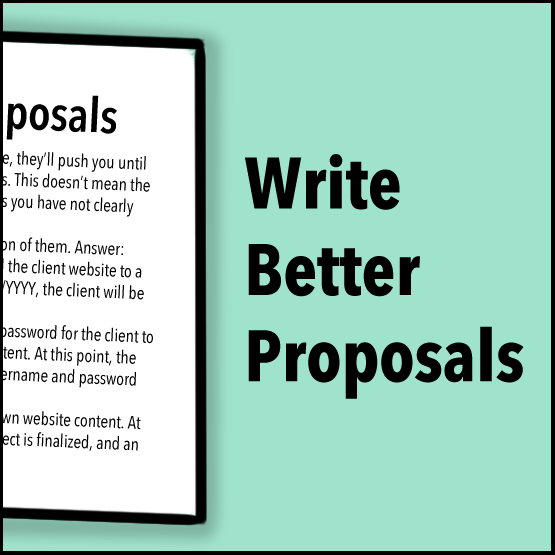
A business proposal is a written offer from a seller to a prospective buyer. It is a critical link in the business decision for two parties to work together.
That’s because a business proposal sets expectations, clarifies the process, defines deliverables and serves as a promise explaining:
- What a company will do
- How they will do it
- When the work will be done
- Where resources come from
- Why they are the right partner
The strength of a business proposal often makes the difference between winning and losing the business. Isn’t worth knowing what makes a winning one?
Here are 7 points every persuasive business proposal makes.
- NEEDS AND REQUIREMENTS: Begin by confirming what the proposal covers. By starting the business proposal with a prospective client’s business needs, you demonstrate good listening skills; ones that establish credibility. By talking about their business instead of yours, you gain confidence. You build a solid foundation for everything you will be providing from this point on.
- UNDERSTANDING THE BUSINESS: Demonstrate knowledge of their business. This is often done by identifying the opportunity and challenges; the client’s strengths and weaknesses; competitors and competitive threats and industry and consumer trends. If your company has done something like this before or has a relevant example, mention it. This section shouldn’t be long or include a lot of jargon. But it should be smart and leave the reader with the impression: “These guys get it.”
- PROCESS OR METHODOLOGY: Show how your company solves problems and gets to solutions. Now that everyone is grounded on what has to be done, start to illustrate the way that your company does it is different and better than your competitors. By describing a process, you are showing your company has the experience, capabilities and expertise to give the prospective client something they wouldn’t be able to get anywhere else.
- SCOPE OF SERVICES AND DELIVERABLES: This is the nut and bolts of the proposal. Start by covering the range of services that would be offered. Then, the activities that provide what’s going on behind the scenes at your company to get the job done. Finally, list the items that you be giving them so there is hard, tangible value to support your efforts.
- VALUE PROPOSITION: Although terms like supplier and vendor are often used when requesting a business proposal, make it more of a partnership. State what makes your company different; show how your values are aligned with the potential client’s. Make this something both parties can see as the possible beginning of a long term relationship.
- COMPENSATION AND PRICING: This, of course, is where the rubber meets the road. If the proposal has been well crafted up to this point, the fees should justify the services. And if it’s necessary to break down the numbers, give some details. Explain the cost of key activities. Explain staffing to provide context on compensation if it is going to help clarity and transparency,
- TERMS AND CONDITIONS: Every business proposal is going to come with terms and conditions to protect both parties. While this may refers to the terms from a contract or services agreement, it should be stated in the proposal. This section will likely be written with input from lawyers on both sides but it is necessary and an expected part of any final, agreed-to business proposal.
Are these points persuasive to you? Do you practice them? Will you put them to use?
